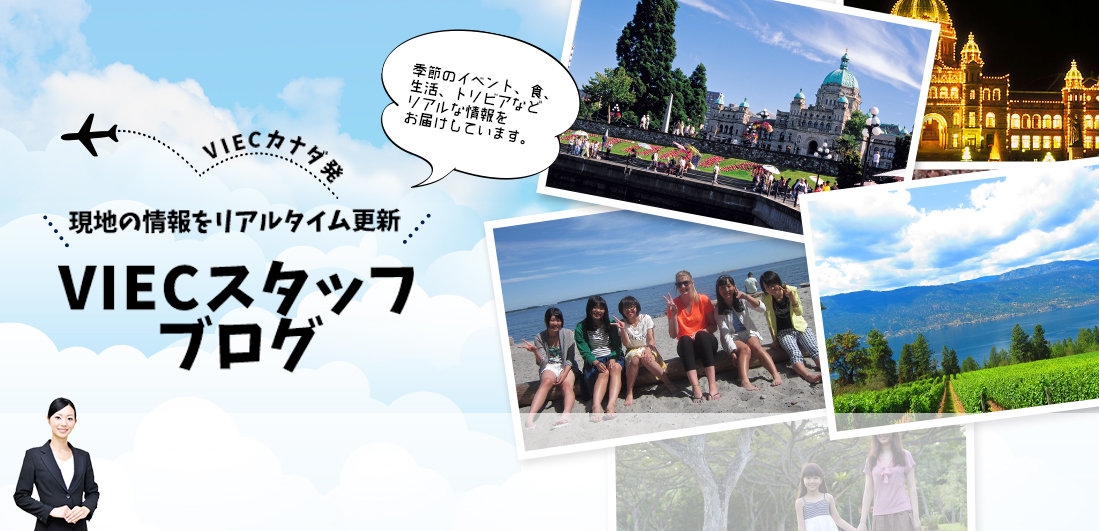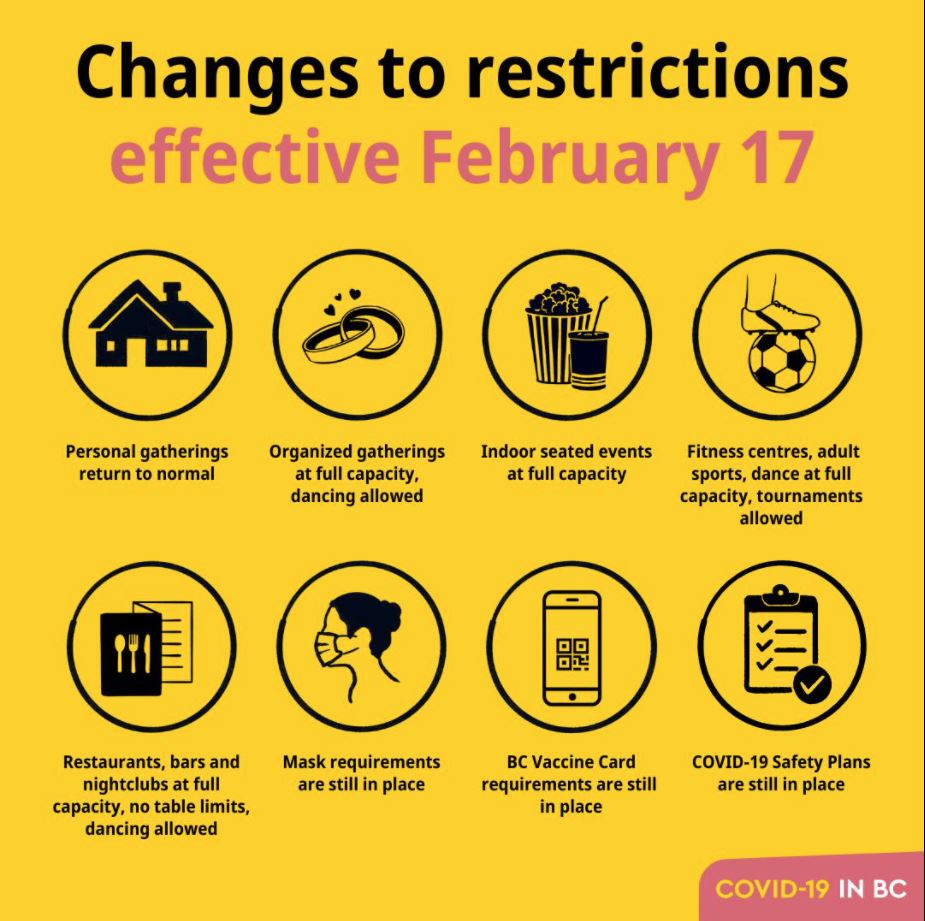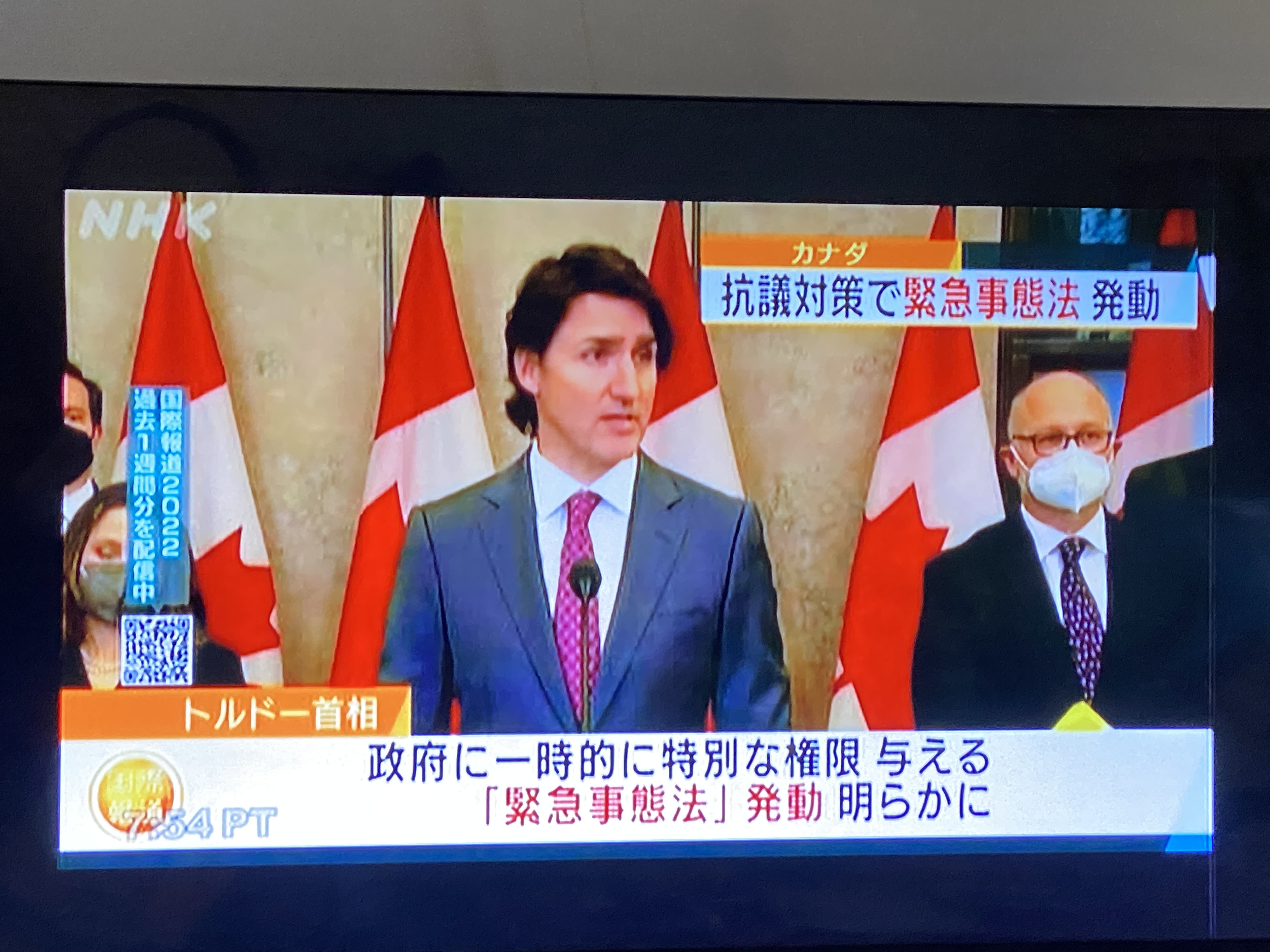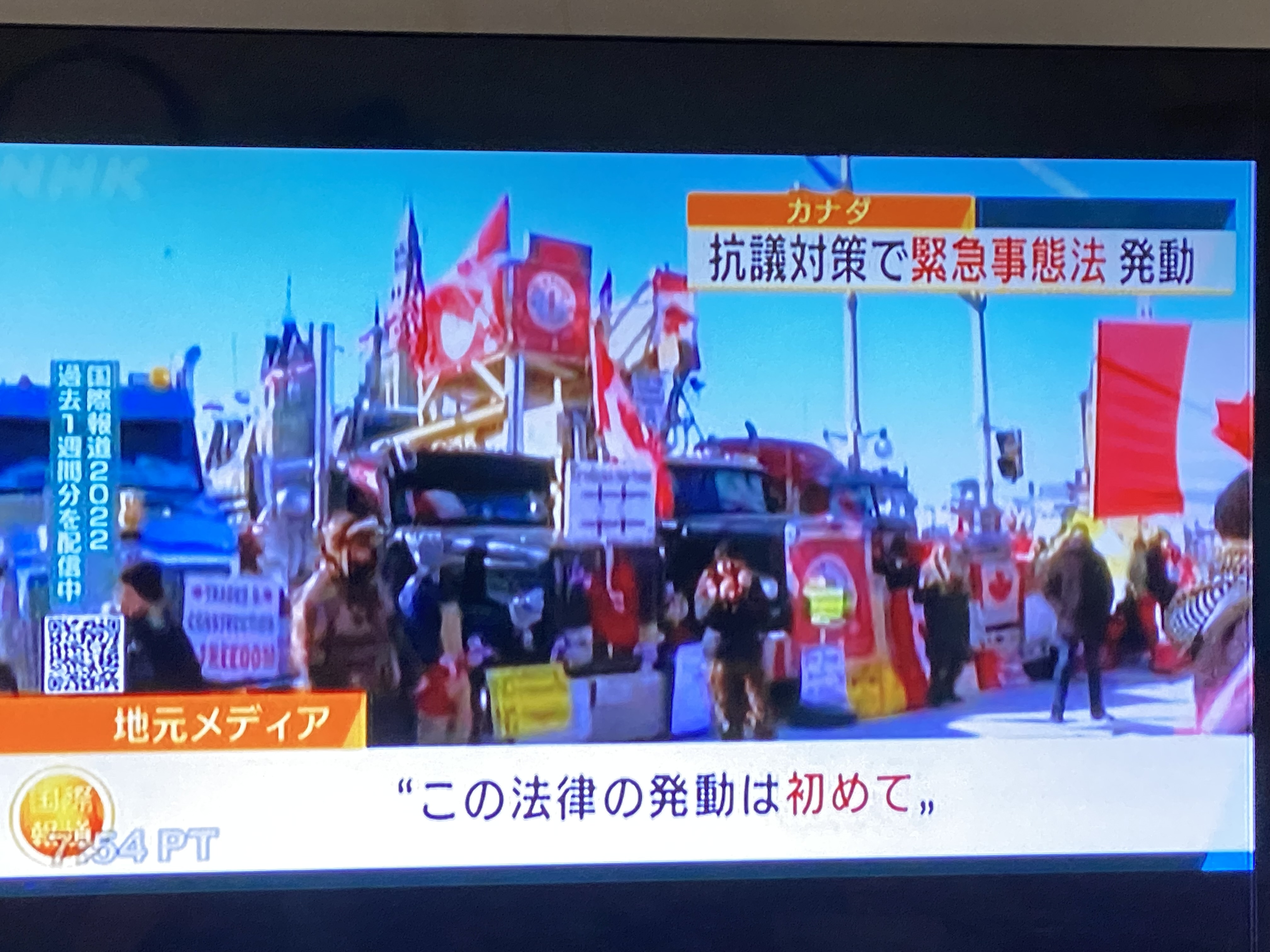

VIECは2000年の創立以来、のべ10,000人を超える留学生のサポートを行って参りました。小学生からシニアまで幅広い年齢層のニーズにあわせた留学プランをご提案致します。


VIECは2000年の創立以来、のべ10,000人を超える留学生のサポートを行って参りました。小学生からシニアまで幅広い年齢層のニーズにあわせた留学プランをご提案致します。
新型コロナウイルス~ビクトリアの状況 ’22 02/16【BC州行動制限緩和、カナダ政府水際対策緩和】
2022年02月17日(木)
オミクロン株感染のピークアウトもあり、今週になりBC州、カナダ政府が一気に色々と動きました。
BC州、行動制限を一部撤廃
先日のBC州政府発表で、2月17日(木)より、今まで設定されていたバーやナイトクラブの再開、イベントの人数制限撤廃やダンス禁止を撤廃、スポーツジムやレストランでの人数制限撤廃などが決まりました。
ワクチン接種証明、ワクチンカードの各所での提示、マスク着用はそのまま継続です。

カナダ政府、水際対策を緩和
昨日(2/15)のカナダ政府発表で、2/28 (Mon) 明けよりカナダ入国時の水対策の大幅な緩和を発表しました。
以前として、緩和対象は、ワクチン接種が完了している人(カナダ指定のワクチンを1回又は2回接種し、ワクチン接種証明がある人)が対象です。
カナダ政府の発表では、Travellerと記載されており、留学生や旅行者は含まれるのかは明言がありません。
過去の事例から見て恐らく留学生や旅行者も含まれる事になるとは思いますが、最終的な確認は出来ませんでした。
緩和される内容抜粋:
~指定の機関で検査を受ける事が必要で、ホームキット代用は不可)
変更無し:
カナダ政府サイト:
February 15, 2022 Ottawa, ON Public Health Agency of Canada
Recent data indicates that the latest wave of COVID-19 driven by the Omicron variant has passed its peak in Canada. As provinces and territories adjust their public health measures, and as we transition away from the crisis phase, it is now time to move towards a more sustainable approach to long-term management of COVID-19.
This transition is possible because of a number of factors, including Canada’s high vaccination rates, the increasing availability and use of rapid tests to detect infection, decreasing hospitalization rates and growing domestic availability of therapeutics and treatments.
Today, the Government of Canada announced a series of adjustments to the current border measures, representing the beginning of a phased easing of travel restrictions. The ability of the country to transition to a new phase at the border is a result of the actions of tens of millions of Canadians across the country who followed public health measures, including getting themselves and their families vaccinated.
As of February 28, 2022 at 12:01 a.m. EST:
Quotes
“For two years now, our government’s actions in the fight against COVID-19 have been based on prudence and science. Today’s announcements are a reflection of the progress we have made against this current Omicron variant. The return to mandatory random testing of all vaccinated travellers will facilitate travel for Canadians all while helping our public health authorities to detect future changes in COVID-19 importation rates and variants of concern. As we have said all along, Canada’s border measures will remain flexible and adaptable, for potential future scenarios.”
The Honourable Jean-Yves Duclos
Minister of Health
“The measures we are announcing today are possible in part because Canadians have stepped up, rolled up their sleeves and gotten vaccinated. These measures will allow vaccinated Canadians to once again reunite with family and friends and reap the economic benefit that travel provides. We will continue to evaluate our measures and will not hesitate to make necessary adjustments to keep Canadians and our transportation system safe.”
The Honourable Omar Alghabra
Minister of Transport
“The health and safety of Canadians is our government’s top priority. Since the onset of this pandemic, we have taken practical and necessary steps to stop the spread of COVID-19 – and as the situation evolves, so does our response. I especially want to thank Canada Border Services Agency employees for their tireless work over the past two years. We always take action to secure our borders and protect our communities, because that’s what Canadians expect.”
The Honourable Marco E. L. Mendicino
Minister of Public Safety
“We are committed to a safe reopening; one that provides predictability, flexibility and shows the world that Canada is one of the safest places to travel. Travel is safe and will continue to be safe in Canada. Thank you to the tourism industry that has been a leader around the world in ensuring the safety of travellers while weathering one of the most challenging economic crisis. Let me be clear that the Canadian economy will not fully recover until our tourism sector recovers and today’s measures will help us safely welcome visitors to Canada.”
The Honourable Randy Boissonnault
Minister of Tourism and Associate Minister of Finance
Quick Facts
🚚🚚🚚🚚🚚🚚🚚🚚🚚🚚🚚🚚🚚🚚🚚🚚🚚🚚🚚🚚🚚🚚🚚🚚🚚🚚🚚🚚
日本のニュースにもなっていましたが、先日から続くトラックドライバーへのワクチン接種義務化への抵抗のデモに対し、カナダは国内初の緊急事態法を発令し、アメリカとの国境を占拠していた各地のデモ隊を強制排除しました。
発令とほぼ同時での水際対策緩和ですので、鞭と飴を使った感じですね。
平常時ではお互いの主張を重んじるカナダですが、今回は、カナダ政府も毅然とした態度でした。


May,K
![]()
コメントする
![]()
シェアする
新型コロナウイルス~ビクトリアの状況 ’22 02/16【BC州行動制限緩和、カナダ政府水際対策緩和】
2022年02月17日(木)
オミクロン株感染のピークアウトもあり、今週になりBC州、カナダ政府が一気に色々と動きました。
BC州、行動制限を一部撤廃
先日のBC州政府発表で、2月17日(木)より、今まで設定されていたバーやナイトクラブの再開、イベントの人数制限撤廃やダンス禁止を撤廃、スポーツジムやレストランでの人数制限撤廃などが決まりました。
ワクチン接種証明、ワクチンカードの各所での提示、マスク着用はそのまま継続です。

カナダ政府、水際対策を緩和
昨日(2/15)のカナダ政府発表で、2/28 (Mon) 明けよりカナダ入国時の水対策の大幅な緩和を発表しました。
以前として、緩和対象は、ワクチン接種が完了している人(カナダ指定のワクチンを1回又は2回接種し、ワクチン接種証明がある人)が対象です。
カナダ政府の発表では、Travellerと記載されており、留学生や旅行者は含まれるのかは明言がありません。
過去の事例から見て恐らく留学生や旅行者も含まれる事になるとは思いますが、最終的な確認は出来ませんでした。
緩和される内容抜粋:
~指定の機関で検査を受ける事が必要で、ホームキット代用は不可)
変更無し:
カナダ政府サイト:
February 15, 2022 Ottawa, ON Public Health Agency of Canada
Recent data indicates that the latest wave of COVID-19 driven by the Omicron variant has passed its peak in Canada. As provinces and territories adjust their public health measures, and as we transition away from the crisis phase, it is now time to move towards a more sustainable approach to long-term management of COVID-19.
This transition is possible because of a number of factors, including Canada’s high vaccination rates, the increasing availability and use of rapid tests to detect infection, decreasing hospitalization rates and growing domestic availability of therapeutics and treatments.
Today, the Government of Canada announced a series of adjustments to the current border measures, representing the beginning of a phased easing of travel restrictions. The ability of the country to transition to a new phase at the border is a result of the actions of tens of millions of Canadians across the country who followed public health measures, including getting themselves and their families vaccinated.
As of February 28, 2022 at 12:01 a.m. EST:
Quotes
“For two years now, our government’s actions in the fight against COVID-19 have been based on prudence and science. Today’s announcements are a reflection of the progress we have made against this current Omicron variant. The return to mandatory random testing of all vaccinated travellers will facilitate travel for Canadians all while helping our public health authorities to detect future changes in COVID-19 importation rates and variants of concern. As we have said all along, Canada’s border measures will remain flexible and adaptable, for potential future scenarios.”
The Honourable Jean-Yves Duclos
Minister of Health
“The measures we are announcing today are possible in part because Canadians have stepped up, rolled up their sleeves and gotten vaccinated. These measures will allow vaccinated Canadians to once again reunite with family and friends and reap the economic benefit that travel provides. We will continue to evaluate our measures and will not hesitate to make necessary adjustments to keep Canadians and our transportation system safe.”
The Honourable Omar Alghabra
Minister of Transport
“The health and safety of Canadians is our government’s top priority. Since the onset of this pandemic, we have taken practical and necessary steps to stop the spread of COVID-19 – and as the situation evolves, so does our response. I especially want to thank Canada Border Services Agency employees for their tireless work over the past two years. We always take action to secure our borders and protect our communities, because that’s what Canadians expect.”
The Honourable Marco E. L. Mendicino
Minister of Public Safety
“We are committed to a safe reopening; one that provides predictability, flexibility and shows the world that Canada is one of the safest places to travel. Travel is safe and will continue to be safe in Canada. Thank you to the tourism industry that has been a leader around the world in ensuring the safety of travellers while weathering one of the most challenging economic crisis. Let me be clear that the Canadian economy will not fully recover until our tourism sector recovers and today’s measures will help us safely welcome visitors to Canada.”
The Honourable Randy Boissonnault
Minister of Tourism and Associate Minister of Finance
Quick Facts
🚚🚚🚚🚚🚚🚚🚚🚚🚚🚚🚚🚚🚚🚚🚚🚚🚚🚚🚚🚚🚚🚚🚚🚚🚚🚚🚚🚚
日本のニュースにもなっていましたが、先日から続くトラックドライバーへのワクチン接種義務化への抵抗のデモに対し、カナダは国内初の緊急事態法を発令し、アメリカとの国境を占拠していた各地のデモ隊を強制排除しました。
発令とほぼ同時での水際対策緩和ですので、鞭と飴を使った感じですね。
平常時ではお互いの主張を重んじるカナダですが、今回は、カナダ政府も毅然とした態度でした。


May,K
![]()
コメントする
![]()
シェアする